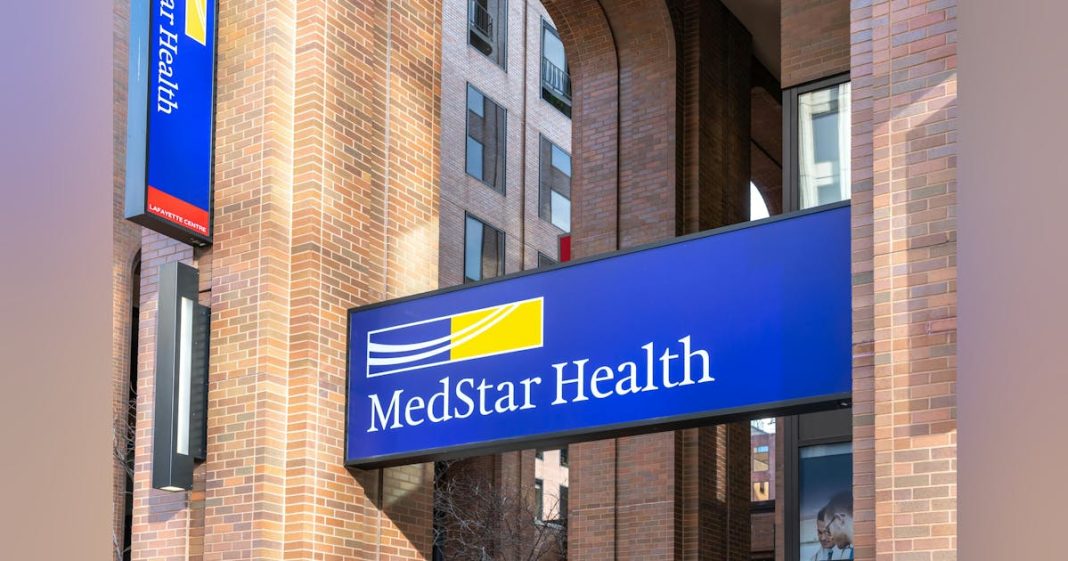America’s Essential Hospitals, whose 300 members care for low-income and other marginalized people, recently recognized four member hospitals for their work to improve healthcare quality and population health.
The 2024 award for quality improvement went to Minneapolis-based Hennepin Healthcare, which launched the Healing and Opportunities with Psychotic Experiences (HOPE) Program in 2016 to provide early intervention for patients ages 15 to 40 experiencing an illness on the schizophrenia spectrum. An interdisciplinary team provides empirically based treatment.
Since 2016, HOPE has treated 329 patients. Reduction in symptom severity from time of enrollment to time of discharge increased from 60 percent in 2021 to 65 percent in 2023.
“This recognition means the rest of the country will see how the HOPE Program brings targeted, team-based interventions to patients experiencing a schizophrenia-spectrum illness,” said Jennifer DeCubellis, M.A., CEO of Hennepin Healthcare, in a statement. “This is an urgent need today, and I hope other health systems and communities can learn from how we help individuals and families cope effectively and successfully navigate the road to recovery — in essence, creating HOPE.”
Population health award
MedStar Washington Hospital Center has been named the 2024 Gage Award Winner for Population Health. It was recognized for its work to address social determinants of health and improve birth equity in Washington, D.C.’s underserved neighborhoods, specifically in Wards 7 and 8.
The Gage Award for Population Health recognizes programs that aim to improve specific health outcomes for a defined population or community by addressing the social and economic factors that influence health. The award, named after America’s Essential Hospitals founder Larry Gage, honors, and shares successful and creative member hospital programs that improve patient care and meet community needs.
MedStar Washington Hospital Center’s Women’s and Infants’ Services (WIS) seeks to increase early interventions for adverse social determinants of health, decrease the number of patients experiencing birthing complications, and mitigate risk factors associated with higher mortality rates in Washington, D.C. Targeting the city’s Black-majority Wards 7 and 8, where infant mortality rates are twice the city’s average, MedStar Health launched upstream efforts, including preconception health assessments and prenatal social needs screenings.
WIS has seen a clear increase in patients accessing interdisciplinary services, which led to improved health outcomes. The rate of babies born with very low birth weights (less than 1,500 grams) decreased by more than 15 percent, and the rate of babies with low birth weights (less than 2,500 grams) decreased by more than 7 percent.
“We are humbled and grateful to be recognized for the amazing work our team does every day for mothers and their families through our Safe Babies Safe Moms program,” said Gregory J. Argyros, M.D., president of MedStar Washington Hospital Center, in a statement. “Our work is so important, and we are seeing remarkable results. We are committed to continuing this important program to provide our patients with the highest quality and safest care.”
Honorable mention
Honorable mention for the quality award went to Houston-based Harris Health. To help patients find the right care in the right place and improve throughput and safety, Harris Health in 2020 leveraged the Multi-Visit Patients (MVP) Method. This program links MVPs, defined as patients with 10 or more emergency department (ED) visits in the past year, with community health workers in the ED to identify their root cause of frequent visits and connect them to necessary care and community resources.
In three years, the annual MVP ED visit count decreased by 23.2 percent, and total length of stay hours decreased by 36 percent. The MVP team has reunited at least 10 patients with their families, obtained routine dialysis treatment for 26 patients with end-stage renal disease, connected 15 patients with substance use disorder to rehabilitation services, and helped 22 patients receive housing.
“Receiving this award is a tremendous acknowledgement of our program’s success,” said Esmaeil Porsa, M.D., president and CEO of Harris Health, in a statement. “We see it in the reduction of patients who no longer use our emergency centers for non-emergent social needs. We also see it in our patients’ improved health care outcomes and better quality of life.”
Honorable mention for population health went to UTMB Health, in Galveston, Texas, which launched its Community Health Program (CHP) in 2007 to provide community-based care and condition management services to adults with chronic conditions, including diabetes, hypertension, and heart disease, in Galveston and Brazoria counties, which face increased poverty and uninsured rates.
Five geographically deployed teams each comprise a care manager, community health worker, and social worker. Teams assess patients at home and then develop a patient-centered plan of care.
For a 28-patient cohort, CHP enrollment for 12 months led to an 83 percent decrease in hospitalization and 95 percent reduction in ED visits. Participants’ hemoglobin A1c values and blood pressure decreased. In comparison with a control group of patients not enrolled in the program, CHP enrollment reduced system costs by 24 percent.
“The UTMB Community Health Program has been a vital part of providing care for many patients who need post-discharge assistance and, in some cases, has proved to be an alternative to hospitalization,” said Craig Kovacevich, M.A., associate vice president, alternative care models, in a statement. “What has made the CHP team so successful is the many years of combined experience with both medical and social drivers of health care. As such, CHP has been recognized as a model that can be utilized in many different ways to help the organization and the patients we serve have the best outcomes possible.”







